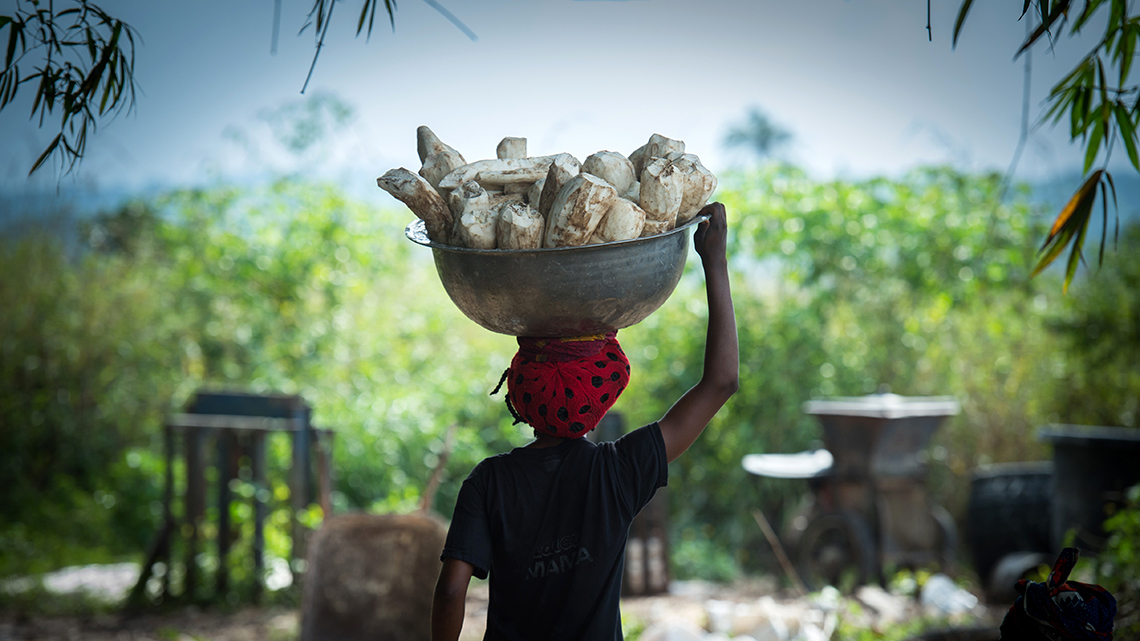Our responsibility to address the factors driving people from their homes.

Love the Stranger
Many people become migrants or refugees because they cannot flourish in their own country. This is a great tragedy, as all people have a right to live in dignity in the place of their birth. This issue was raised as early as 1891 by Pope Leo XIII in his encyclical, Rerum Novarum. He wrote: “no one would exchange his country for a foreign land if his own afforded him the means of living a decent and happy life.”12 This was reaffirmed in Fratelli Tutti, with Pope Francis explaining that: “Ideally, unnecessary migration ought to be avoided” and that “this entails creating in countries of origin the conditions needed for a dignified life and integral development.”13 Likewise, the Compendium of the Social Doctrine of the Church emphasises, with specific reference to migrant workers, that while they must be welcomed and respected, “At the same time, conditions that foster increased work opportunities in people’s place of origin are to be promoted as much as possible.”14
This perspective does not dilute our obligations to welcome migrants and refugees, nor does it undermine people’s fundamental right to migrate. Rather, it is intended to highlight that the conditions necessary for a dignified life should exist everywhere without exception. This is required to genuinely realise the ideal of a single human family and to ensure that people do not experience conditions in which their human dignity can only be protected by leaving their homeland. We should also bear in mind that migration is neither desirable nor possible for many who live in parts of the world affected by violence or poverty.
Reflecting on the right to flourish in one’s own homeland, Pope John Paul II noted: “By means of a farsighted local and national administration, more equitable trade and supportive international cooperation, it is possible for every country to guarantee its own population, in addition to freedom of expression and movement, the possibility to satisfy basic needs such as food, health care, work, housing and education; the frustration of these needs forces many into a position where their only option is to emigrate.”15
Whilst countries and peoples are responsible for their own economic development and for creating the political and economic preconditions for development to happen, richer nations also have a responsibility to support, and certainly to not impede, the development of poorer nations.
This responsibility was set out by Pope Paul VI in Populorum Progressio, where he appealed: “The hungry nations of the world cry out to the peoples blessed with abundance. And the Church, cut to the quick by this cry, asks each and every man to hear his brother’s plea and answer it lovingly”,16 before continuing to set out the duties of wealthier nations to act with mutual solidarity, social justice, and universal charity.17
War, violence, and insecurity are often at the root of people leaving their homelands. Each member of the family of nations has a responsibility to promote peace and human rights throughout the world, so that all peoples can flourish in the countries in which they live. In The Common Good, the Bishops of England and Wales explored these duties in our own context, placing assistance for refugees alongside issues including fair international trade policies, support for the United Nations, and control of the arms trade.18
__________
<< Back to ‘Love the Stranger’
__________
References
12. Pope Leo XIII, Rerum Novarum (1891) 47.
13. Pope Francis, Fratelli Tutti (2020) 129.
14. Pontifical Council for Justice and Peace, Compendium of the Social Doctrine of the Church (2004) 298.
15. Pope John Paul II, Message for the 90th World Day of Migrants and Refugees (2004).
16. Pope Paul VI, Populorum Progressio (1967) 3.
18. Catholic Bishops’ Conference of England and Wales, The Common Good and the Catholic Church’s Social Teaching (1996) 14.